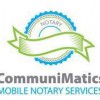
Scout units, church groups, Little League and Youth Groups - call us for a mobile notary when it's time to have paperwork like physical forms, applications, permission slips, etc. notarized for a special event or trip. We'll come to one of your meetings to notarize paperwork for all of your members.
Services
A notary public is an individual issued an appointment by the Governor or Secretary of State to serve the public as an impartial witness, performing notarial acts as are allowed or required by law.
What exactly is a Notarization?
A "notarization" is more precisely called a "notarial act".
Although Notaries are forbidden to choose the type of notarization for a signer, you need to know the difference between common notarial acts in order to perform your duties properly.
Acknowledgments The purpose of an acknowledgment is to ensure that the signer of a document is.
What exactly is a Notarization?
A "notarization" is more precisely called a "notarial act".
Although Notaries are forbidden to choose the type of notarization for a signer, you need to know the difference between common notarial acts in order to perform your duties properly.
Acknowledgments The purpose of an acknowledgment is to ensure that the signer of a document is.
Although Notaries are forbidden to choose the type of notarization for a signer, you need to know the difference between common notarial acts in order to perform your duties properly.
The purpose of an acknowledgment is to ensure that the signer of a document is who they claim to be and has voluntarily signed the document.
Acknowledgments often are needed for documents concerning valuable assets, such as deeds, mortgages and deeds of trust.
To perform an acknowledgment, the signer must personally appear before you at the time of notarization to be positively identified and to declare - or "acknowledge" - that the signature on the document is their own and that they signed willingly.
The purpose of an acknowledgment is to ensure that the signer of a document is who they claim to be and has voluntarily signed the document.
Acknowledgments often are needed for documents concerning valuable assets, such as deeds, mortgages and deeds of trust.
To perform an acknowledgment, the signer must personally appear before you at the time of notarization to be positively identified and to declare - or "acknowledge" - that the signature on the document is their own and that they signed willingly.
Unless a notary is also a licensed attorney, he or she may not give legal advice or accept fees for legal advice.
In civil-law jurisdictions, and in most common-law jurisdictions outside the United States, notaries are essentially lawyers who have extensive training in the drafting of documents.
However, American common-law notaries do not have any legal authority unless they happen to also be a licensed attorney.
As a result, it would be considered unauthorized practice of law for a non-attorney notary to give legal advice.
In civil-law jurisdictions, and in most common-law jurisdictions outside the United States, notaries are essentially lawyers who have extensive training in the drafting of documents.
However, American common-law notaries do not have any legal authority unless they happen to also be a licensed attorney.
As a result, it would be considered unauthorized practice of law for a non-attorney notary to give legal advice.
What is Remote On-line Notarization?
Remote On-line Notarization, or RON, is the notarization of a signature using a state approved platform that allows the Notary and the signer to appear before each other at the time of the notarization using audio-visual technology over the internet rather than meeting face-to-face in the same location.
What is an approved platform?
Approved platforms are those that meet the state's requirements for providing secure audio-visual technology as well as providing identification verification of each signer.
Remote On-line Notarization, or RON, is the notarization of a signature using a state approved platform that allows the Notary and the signer to appear before each other at the time of the notarization using audio-visual technology over the internet rather than meeting face-to-face in the same location.
What is an approved platform?
Approved platforms are those that meet the state's requirements for providing secure audio-visual technology as well as providing identification verification of each signer.
Digital technologies are paving the way for more convenient and efficient transactions.
Paper documents and wet-ink signatures are being replaced by their electronic equivalents, and "in-person" appearances can now be facilitated by secure and remote audio-visual solutions.
More than half of the states in the U.S. have adopted permanent remote online notarization ("RON") laws, and most of the remaining states have approved RON by executive or emergency order.
In this article, we summarize the U.S. legal framework for RON, explore why notarial acts conducted in compliance with a state RON law likely will be recognized in any other state (even those that do not have RON laws), and discuss some steps to take when relying on RON.
Paper documents and wet-ink signatures are being replaced by their electronic equivalents, and "in-person" appearances can now be facilitated by secure and remote audio-visual solutions.
More than half of the states in the U.S. have adopted permanent remote online notarization ("RON") laws, and most of the remaining states have approved RON by executive or emergency order.
In this article, we summarize the U.S. legal framework for RON, explore why notarial acts conducted in compliance with a state RON law likely will be recognized in any other state (even those that do not have RON laws), and discuss some steps to take when relying on RON.
Reviews

Be the first to review CommuniMatics Mobile Notary Service.
Write a Review